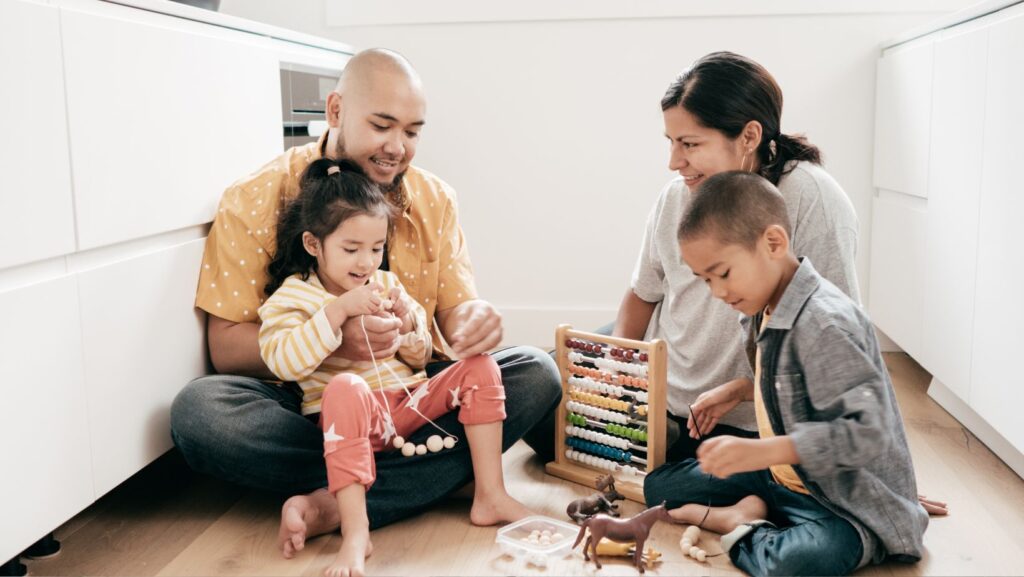Being a parenting leader isn’t about taking control or asserting dominance. It’s about guiding your children, modeling positive behaviors, and nurturing their growth. It’s about stepping up, taking responsibility, and setting the right example.
In this article, we’ll delve into the concept of a parenting leader, shedding light on its significance and how it can transform the dynamics of your family. So, buckle up and get ready to embark on an enlightening journey that may well change your approach to parenting.
Parenting Leader
A parenting leader is someone who assumes an active role in guiding their child’s growth and development. Unlike conventional parenting methods, parenting leadership abandons the concept of control and embraces the values of guidance, modeling, and nurturing. It’s a leadership style that stresses the importance of active engagement and emotional connection in the growth journey of the child.
Essential Qualities of a Parenting Leader
 Parenting leadership requires a combination of several qualities and skills. Foremost is empathy, as being an effective parenting leader involves understanding a child’s feelings and perspectives. Patience is equally vital, managing stressful situations calmly provides stability for the child. Consistency, another key trait, gives children the predictability they need to feel secure. A strategic mindset is also pivotal, allowing parents to preempt challenges and plan for success. Hence, an exemplary parenting leader embodies empathy, patience, consistency, and strategic thinking.
Parenting leadership requires a combination of several qualities and skills. Foremost is empathy, as being an effective parenting leader involves understanding a child’s feelings and perspectives. Patience is equally vital, managing stressful situations calmly provides stability for the child. Consistency, another key trait, gives children the predictability they need to feel secure. A strategic mindset is also pivotal, allowing parents to preempt challenges and plan for success. Hence, an exemplary parenting leader embodies empathy, patience, consistency, and strategic thinking.
Strategies for Effective Parenting Leadership
Advancing in the realm of parenting leadership calls for practical application of certain strategies.
Communicating Expectations and Boundaries
For a parenting leader, conveying expectations and setting healthy boundaries remains essential. Constructive communication is the cornerstone, which means speaking to children in ways they understand. Instead of merely issuing orders, parents can use simple, clear phrases and reiterate them whenever required. For example, if a parent desires their child to tidy up his room after playing, they may say, “Remember, we keep our toys back in the box after playing.” This creates an atmosphere where children understand not just the action, but also the reason behind it.
The Importance of Consistency
 Remaining steady, not only in terms of routine but also when responding to children’s behavior, plays a crucial role in parenting leadership. It shows children what they can expect from their parents under different circumstances. Regular reinforcement of this consistency ensures children’s understanding of parents’ expectations. For instance, if a parent consistently praises their child for completing homework on time, the child learns the value of punctuality and responsibility.
Remaining steady, not only in terms of routine but also when responding to children’s behavior, plays a crucial role in parenting leadership. It shows children what they can expect from their parents under different circumstances. Regular reinforcement of this consistency ensures children’s understanding of parents’ expectations. For instance, if a parent consistently praises their child for completing homework on time, the child learns the value of punctuality and responsibility.
Real-Life Examples of Successful Parenting Leadership
Expounding from complex battles faced by parenting leaders, there exist experiential narratives that highlight successful outcomes of maintaining authority emitting empathy. Delving into these narratives can illuminate the potential for evolution and growth within the family environment, whilst demonstrating practical strategies for effective communication and consistent guidance.
Oprah Winfrey’s Wise and Nurturing Approach
Despite a difficult upbringing, Oprah Winfrey used her experiences to become a positive influence for many. Oprah’s clear understanding of empathy, nurtured through her experiences, became key in her mentorship roles, showing the power of empathy within a leadership position.
Michelle Obama and Her Balancing Skills
 The former First Lady, Michelle Obama, famously considered her most important title to be “mom-in-chief”. She sculpted a disciplined yet enjoyable environment for her children whilst balancing professional commitments, an embodiment of the perfect balance a parenting leader strives for.
The former First Lady, Michelle Obama, famously considered her most important title to be “mom-in-chief”. She sculpted a disciplined yet enjoyable environment for her children whilst balancing professional commitments, an embodiment of the perfect balance a parenting leader strives for.
Randy Pausch’s Consistent Guidance
Randy Pausch, an impassioned professor, is best known for his “Last Lecture” that guided millions globally. He upheld consistency in the way he led his children and students. His unique story underscores the significance of consistent guidance, striking right at its core.
Brene Brown’s Authentic Connection
Brene Brown, a renowned researcher-storyteller, translates her understanding of vulnerability into her parenting style, maintaining an efficient means of communication with her children. She underlines the importance of authenticity and connection, further sharpening the edges of successful parenting.
From these examples, it becomes evident that successful parenting leadership isn’t just about striking a balance between authority and empathy or maintaining efficient communication. It is, more importantly, about reinventing and evolving with the responsibilities and becoming an authentic mentor pivotal to children’s development stages.



